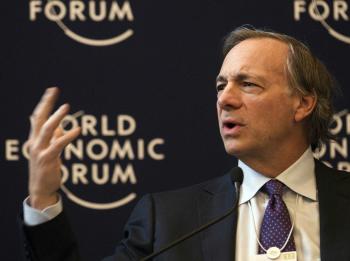
Everybody Loves Raymond
A couple of weeks ago at the World Economic Forum in Davos, Switzerland, Ray Dalio spoke with CNBC. Prominent economic thinkers in Davos believe the U.S. economy is strong, but its ability to deal with the next crisis is in doubt. “The U.S. is growing and I think that’s a non-debatable fact,” Gary Cohn, president of Goldman Sachs, said Thursday at the World Economic Forum in Switzerland. “What I am concerned about is the actual ability of the U.S. to raise rates with what’s going on with the rest of the world.” Below, we summarise the outtakes.
Their outtakes follow:
Cohn said renewed stimulus efforts in Japan, Europe and elsewhere were creating a big spread between global interest rates and currencies. He said raising rates in the U.S. would cause the dollar to further appreciate, which could have a “chilling effect on the U.S. economy.”
Ray Dalio, founder of Bridgewater Associates, the largest hedge fund in the world, echoed the point.
“We’re in a new era in which central banks have largely lost their power to ease,” Dalio said as part of the same panel discussion in noting historically low interest rates. “If you get a downturn in the economy, the effectiveness of monetary policy will be less.”
He did say the U.S. economy was fine for now, but added later that it won’t last forever. “I worry about the downside because the downside will come,” Dalio said.
Still, he said the Federal Reserve should wait until it “sees the whites of the eyes of inflation” before raising interest rates.
Former U.S. Treasury Secretary Larry Summers said the U.S. was unlikely to get rates up anytime soon—and shouldn’t, given no current signs of inflation.
Summers did note that the delay could hurt when the next recession hits as the U.S. government won’t have the same monetary tools to deploy.
The full article is available at http://www.cnbc.com/id/102358918
Roger Montgomery is the founder and Chief Investment Officer of Montgomery Investment Management. To invest with Montgomery, find out more.
QE will probably become the tool of choice for the Fed under the next slow down scenario with interest rates at or near zero.
It’s hard to imagine the US can be immune from slowing down when the majority of world isn’t growing much. Interesting times.